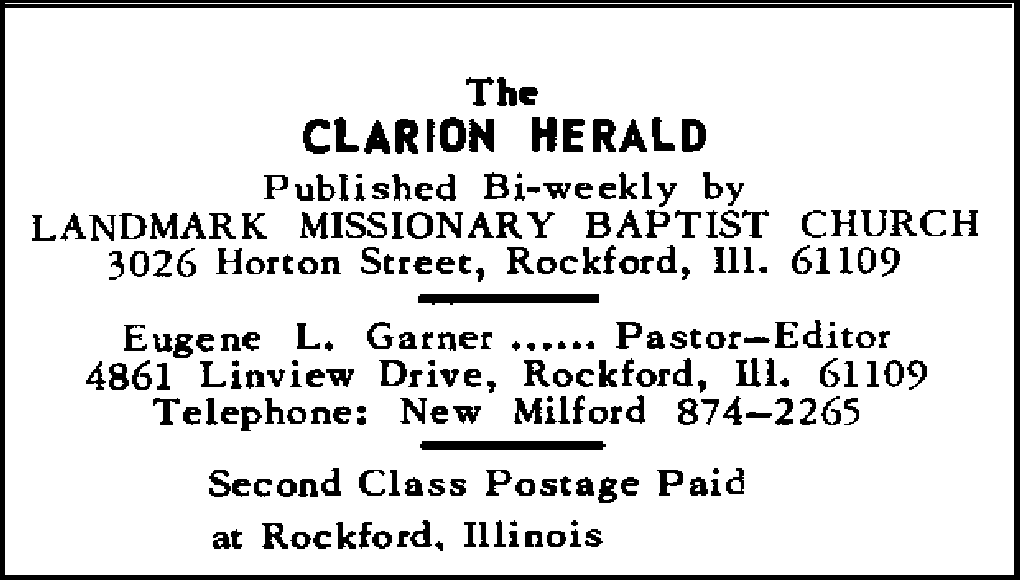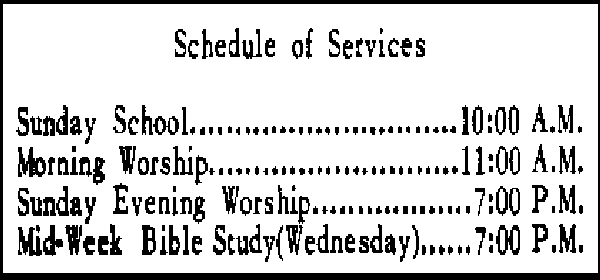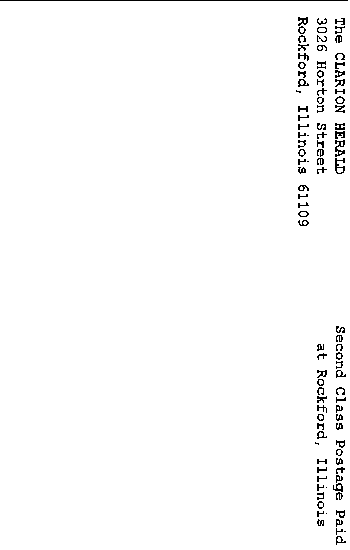
|
 |
 |
 |
|
 
|
|
|
JESUS IS TRIED BY THE JEWS
This study should illustrate why it is so important to study all of the Gospel records together. The lesson material will be found in Matthew 26:57-75; Mark 14:53-72; Luke 22:54-7l and John 18:13-27.
Matthew, Mark and Luke make no mention of Jesus' appearance before Annas, whereas John records ONLY what took place in that trial. John makes no mention of the trial before Caiaphas and the Sanhedrin. Without all that is recorded by the four Gospels the picture would be terribly incomplete.
BEFORE ANNAS
After Jesus had been bound, in the Garden, He was first taken before Annas. This man had been High Priest from A.D. 7 to 14, and still wore the title. Five of his sons had held the office in succession. He was still a powerful factor in the political intrigue of the nation, (Luke 3:2; Acts 4:6). Rome did not really trust him and kept him from continuing in the office of High Priest. Caiaphas, his son-in-law, held the office at the time of Jesus' arrest. He was the heartless politician who had declared
|
|
|
|
that "one man should die for the people" rather than that the whole nation should suffer, (Jn. 11:49-52).
Though Peter and John had temporarily "fled" from the garden, they soon returned to follow Jesus to the palace of the High Priest -- Annas evidently still having an apartment in the palace. Being known to the High Priest, John followed his Master right in -- obviously acknowledging his relationship to the prisoner. Through his intervention Peter was soon allowed to enter also.
The examination of Jesus before Annas involved an inquiry concerning two things: His DISCIPLES and His DOCTRINES, (Jn. 18:19-20). The purpose of this inquisition was to "extort" from Him a confession regarding the number and character of His disciples -- Annas being more concerned about the number and influence of His followers than about His teaching -- a question that Jesus completely ignored. But he also inquired concerning the substance of the secret teaching that he supposed Jesus had instilled in His closest followers -- teachings which Annas hoped would bring Him into conflict with the authorities.
Jesus DID reply to the implication
|
|
|
|
|
Page - 2
that He was privately imparting dangerous sentiments to His followers. He had ALWAYS SPOKEN OPENLY -- in such places as synagogue and Temple "whither the Jews always resort"; He had nothing to hide, (Lk. 14:15). If Annas really wanted to know about His teaching, he might ask those who had heard Him -- a number of whom were present on this very occasion.
It was really contrary to Jewish law to attempt forcing a man to incriminate Himself. There must be proof of criminality before it was even LEGAL to proceed as Annas had begun. Guilt (according to their own rules of law) must be established by independent testimony -- if such were possible.
It was at this point that the "officer" (obviously a servant of the High Priest) "smote Him with the palm of his hand" and rebuked Him for so answering the High Priest, (John lS:22). "If I have spoken evil" said Jesus; "bear
|
|
|
|
witness to the evil". (What is it?) But "if I have spoken the truth, WHY SMITEST THOU ME?"
Annas then sent Him bound to(Caiaphas for an official trial. Was Annas convinced that he had failed to find sufficient evidence for Christ's condemnation? Or did he feel that he could bring about His conviction by presumptive, circumstantial evidence? Who knows' John goes no farther with his record of the Jewish trial -- evidently satisfied that the records of Matthew, Mark and Luke were adequate.
THE FALL OF SIMON PETER
Before proceeding with the examination of Jesus before Caiaphas it seems proper to turn aside and consider the FALL of Simon Peter -- who had boasted so boldly of his loyalty to the Master.
As John brought Peter into the court of the High Priest, the gatekeeper asked: "Art not thou ALSO one of this man's disciples?" Very emphatically Peter exclaimed: "I AM NOT!" (Prov. 2S:26; 29:23-25; Jer. 17:9). The heart of John must have broken over this deliberate falsehood on the part of his weak brother.
A little later Peter stood among the servants and guards of the High Priest -- warming himself by their fire. It is possible that the anxiety which he felt showed in his face. One of the maids, who had observed him closely, said: "This man also was with Him!" Then Peter denied his Master for a second time. "Woman", he said, "I do not even KNOW Him!" (Luke 22:55-56).
|
|
|
|
|
It was about an hour later when someone else said: Of a truth, this fellow was also with Him, for he is a Galilean; his speech betrays him", (Matt. 26:73; Mark 14:66-68; Luke 22:59). According to John it was a cousin of Malcus who said: "Did not I see thee in the Garden with Him?" (Jn. 18:26). Peter began to curse and swear, saying: "I know not this man of whom ye speak!" (Mark 14:71). The words were barely out of his mouth when he was startled to hear a cock crow (Matt. 26:74; see 26:34; Jn.l3:18). At almost the same instant the Lord, being led from the room in the palace, where He had been so shamefully treated, "turned and looked upon Peter", (Luke 22:61). Remembering the Lord's prophecy concerning his conduct, Peter was cut to the heart; going out of the palace court, he sought a place where he could be alone and "wept bitterly", (Matt. 26:75; Luke 22:62; Psa. 32:18; 130:1-4; Isa. 66:2).
In view of this incident we need to recall the admonition of Paul: "Wherefore, let him that thinketh he standeth take heed lest he fall" (I Cor. 10:12; 2 Sam. 12:13; I Kgs. 2:47-50; 2 Cor. 7:10; Gal. 6:1).
Though Peter may have felt himself hopelessly and eternally ruined, he was wrong. His failure became a stepping-stone to a higher, holier and nobler life. Following his story from here to the end -- when he was crucified for Jesus sake -- you will be convinced that there is a gospel of recoverability. It does not diminish the heinousness of Peter's sin; it DOES magnify the grace of God.
|
|
|
|
Page - 3
Peter is well qualified to sound a warning for the saints of all ages to follow, which He did in I Peter 5:8. Sifted and converted, he was later able to "strengthen" his brethren, (Lk. 22:32; Jn. 21:7; Acts 1:15; 2:14, etc.).
BEFORE CAIAPHAS & THE SANHEDRIN
Convened irregularly, contrary to its own rules, the Sanhedrin, under the guidance of Caiaphas, fabricated and preferred a religious charge against Jesus. It appears that most of the council were present at the High Priest's palace during this whole ordeal, (Matthew 26:57-68; Mark 14:53-65; Lk. 22:63-71).
First, they sought such witnesses as would enable them to put Jesus to death -- reaching their verdict, and passing judgment, before they heard a single witness! Matthew declares that they actually SOUGHT "false witnesses" against Him, (Matt. 26:59; see Psa. 27:12; 35:11; Acts 6:13; Prov. 19:5). Many were willing to bear such witness. However, it was ineffective because there was no consistency among the testimonies. But there finally came TWO false witnesses who testified: "This fellow said, I AM ABLE TO DESTROY THE TEMPLE OF GOD AND BUILT IT IN THREE DAYS", (Matt. 26:61; comp. John 2:19-22; Dt. 19:15), Even the witnesses did not agree, (Mark 14:59).
Impatient with Jesus, the High Priest arose and said: "Answerest thou nothing? What is it which these witness against thee?" (Matt.
|
|
|
|
|
Page - 4
26:62). In essence he was asking: "What is the meaning of all this?" But Jesus was silent -- answering not a word.
In response to the command of the High Priest (who employed the name of the living God) Jesus declares His true Messiahship, (Matt. 26:63-64; Mk. 14:61-62). Both Caiaphas and the Sanhedrin obviously understood that the promised Messiah of Israel was to be "the Son of God. Thus, the High Priest commands: "I adjure thee by the Living God, that thou tell us whether thou be the Christ, the Son of God". His words are direct and clear. He wants to hear whether Jesus claims to be divine. And the Master's answer is equally direct and clear: "I AM!" (Mark 14:62).
The claim of Jesus is either true or false; there is no room to doubt the NATURE of the claim. To claim that Jesus never claimed to be divine is to reveal one's ignorance of the scriptures. If He was not GOD, then He was not good; such a claim without reality would make Him the greatest imposter of all time, and guilty of blasphemy, as later charged by the Jews.
But Jesus did not stop with laying claim to Messiahship; He made such a claim as would Sound incredible on any other lips, (Matt. 26: 64; Mark 14:62). He expects to be exalted to the "right hand of God" (Psa. 110:1; Acts 7:55). He will be seen "coming in the clouds of heaven", (Dan. 7:13; Matt. 24:30; 25:31; Lk. 21:27; Jn. 1:51; I Thes. 4:16; Rev, 1:7). Divine sovereignty will belong to Him so that He
|
|
|
|
will be judge of all, (Matt. 16:27; Rom. 14:10).
What a picture Treated as a felon, before the bar of the High Priest, Jesus makes no attempt to free Himself; He is prepared to give His life as "a ransom for us all" -- calm and confident with regard to the future.
Enraged by His reply, Caiaphas took hold of Jesus' garment (actually tearing it) and made the charge that was ultimately accepted by the council: "He hath spoken blasphemy; what further need have we of witnesses? Behold ... ye have HEARD his blasphemy; what do you recommend?" (Lev. 24:16). And they replied: "He deserves DEATH" (John 19:7).
It was at this point that their most shameful treatment of Jesus actually began, (Matt. 26:67-68; Mark 14:65; Luke 22:63-65). They mocked Him, spit in His face and beat Him with their fists. Blindfolding Him, they slapped Him in the face and said: "Prophesy, who is it that smote thee?" And they blasphemously spoke many things against Him, (Luke 22:65).
An official meeting of the council was held early in the morning. It was nothing more than an attempt to "legalize" the decision already reached at the palace of the High Priest, (Luke 22:66-71). "Art thou the Christ? TELL US!" they demanded. He pointed out the unreasonableness of their attitude: "If I tell you, you will not BELIEVE!" "And, if I ASK you" (did they suspect that He really was the Christ?) "You will not answer me, nor let me
(Continued on Page 6)
|
|
|
|
|
THE COST OF TRUE HAPPINESS
"Behold, how good and how pleasant it is for brethren to dwell together in unity"; (Psalm 133:1).
Unfortunately, there are times when stubborn brethren consider it best to DIVIDE in an effort to avoid strife. It was partially for this cause that Abraham and Lot separated long ago, (Gen.13:9; 14:12-16). It caused a great deal of unanticipated trouble in the end.
"Look!" cries the Psalmist, "How good and delightful it is for brethren to dwell together in UNITY!" The more fully we cease our petty bickering and strife -- to live together in peace with our brethren -- the happier we will be within ourselves; and the greater will be the benefits received from the church in which we are fellow-body-members.
The objects of God's love should ever be the objects of our love also, (I John 5:1). His special love TOWARD US ought to produce a peculiar love WITHIN US, (I John 3:16). There is a tremendous contrast between brethren who "dwell together in UNITY" and those who cannot dwell together because of ENMITY.
It is both unnatural and Unchristian for brethren to be constantly backbiting, brawling, contending; debating, deriding, devouring, envying, quarrelling, reproaching, snapping, snarling and tearing at one another (Gal. 5:15). It is natural for a wolf to kill a lamb; it is NOT natural for lambs to kill or wound each other. If we are REALLY God's "sheep" we must manifest the characteristics of sheep rather than wolves, or goats.
|
|
|
|
|
Page - 5
If true happiness is to be known on earth, it will be found among brethren who dwell together in unity -- abandoning their own private preferences and prejudices for the unity of the whole body. True unity not only promotes the happiness of those so dwelling together; it is the best possible recommendation of divine truth, while giving stability and strength to the Christian life, (2 Cor. 13:11).
But, such unity is costly: it requires that we BE CHRIST-LIKE, rather than merely calling ourselves "Christians", (Eph. 4:22-26). There must be a daily renunciation of and a total commitment to, and dependence upon, the Lord Who IS our Peace, (Eph. 2:14). He alone can effect such blessed unity in our experience -- as we truly abandon ourselves to His direction.
WAIT ON THE LORD!
"Say not thou, I will recompense evil; but wait on the Lord, and he shall save thee"; "Vengeance is mine; I will repay, saith the Lord" (Prov. 20:22; Rom. 12:19).
To render evil for evil is man-like; to render evil for good is devilish; but to render good for evil is God-like. A readiness to forgive must ever characterize the true Christian heart.
To say: "I will recompense evil" is to exercise something less than the mind of Christ. It is always better to TAKE wrong than to DO wrong, (I Cor. 6:7; I Pet. 3:14, 17). So long as we are in the world
(Continued on Page 6)
|
|
|
|
|
Page - 6
go". But He gives them the answer --STRAIGHT: "Hereafter shall the Son of Man sit on the right hand of the power of God".
Again they ask: "Art thou then the Son of God? And He answered affirmatively: "I AM, as you say!" As with one voice they cried: "What need we any further witness? for we ourselves have heard (it) of His mouth." And they prepared to ask the Roman governor for His death.
|
|
|
|
WAIT ON THE LORD ... Continued
we may expect to be opposed by the world, (John 16:33). But a Christian is ever ready to be merciful toward all -- freely forgiving any who repent.
Whatever provocation we receive, we must ever be "ready to forgive" -- never taking vengeance into our own hands. Let others say and act as they will; the Christian must NEVER say: "I will show him!" or "I will get even with him!" We must not desire such a thing, nor permit a thought of it to linger long within our hearts. We must never do anything that we cannot do in the name of Christ, or upon which we may not ask His blessing, (Col.3:17). Rather, let us patiently "wait on the Lord", (Psalm 27:14). We must ever keep our minds on the Lord Who has promised to deliver us (Psalm 25:3).
The carnal mind imagines that to permit one evil to pass will expose a person to another and another. But this is not the case. The goodness and grace of God, toward such as yield themselves to His will, more than counter-balances the evil sustained, (Isa. 35:4). Though injury is often hard to bear, resentment will never remove it. The most effective means of destroying our enemies is LOVE; by this they may be transformed into FRIENDS.
A GOOD QUESTION
If every member of your church were just like you -- in attendance and support -- HOW LONG COULD THE CHURCH SURVIVE?
|
|
|
|
|




